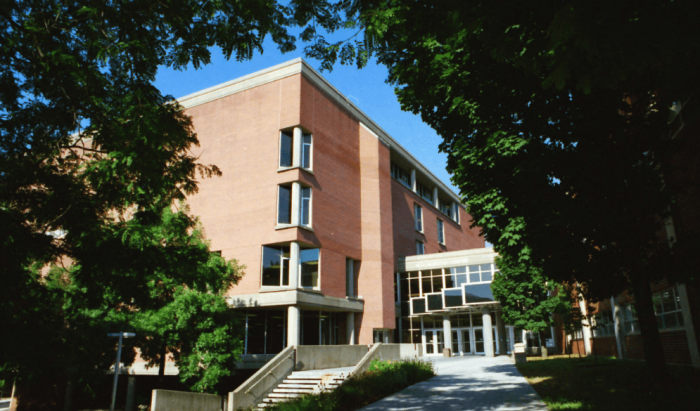Wisconsin Court Rules There's No Right to Watch Porn at University Library

An appeals court has ruled that watching pornography at a university library is not conduct protected by the First Amendment.
The Third District Court of Appeals for the state of Wisconsin ruled last week that the punishment for disorderly conduct given to David Reidinger for viewing porn at a library at the University of Wisconsin-Eau Claire was legal, despite claims that his actions were protected by the U.S. Constitution.
On Dec. 14, 2014, at the university's McIntyre Library, Reidinger was found to be viewing pornography at a computer next to some students attempting to study.
After multiple students complained about his behavior, Reidinger was found guilty of disorderly conduct under Wisconsin Admin. CODE § UWS 18.11(2) and fined $295.
Last week's court ruling states: "The state need not prove that an actual disturbance resulted from Reidinger's conduct, only that the conduct was of a type that tended to cause or provoke a disturbance. Reidinger does not contest the findings of his having committed disorderly conduct. Rather, he raises an as-applied challenge to his citation, asserting his conduct was protected by the First Amendment."
The court also decided that while Reidinger cited two Supreme Court cases to justify his position that the punishment was wrong, neither of them "establishes a First Amendment right to view pornography in a public library or any other public place."
"While [disorderly conduct] laws may have the incidental effect of limiting certain speech, it has long been recognized that there is a valid countervailing interest in preserving public order," continued the court.
"In this case, as the state points out, there was ample evidence that Reidinger's public viewing of pornography at the library was indecent or otherwise disorderly and that it tended to provoke a disturbance."
John Pollitz, director of libraries for the University of Wisconsin-Eau Claire, added in a statement shared with The Christian Post that the university agrees with the appellate court's decision, "because it recognized that our students have a right to study in a comfortable, nonthreatening environment."
"The court ruled the evidence was sufficient to show that Mr. Reidinger's behavior in the library created a disturbance among the students studying there."





























